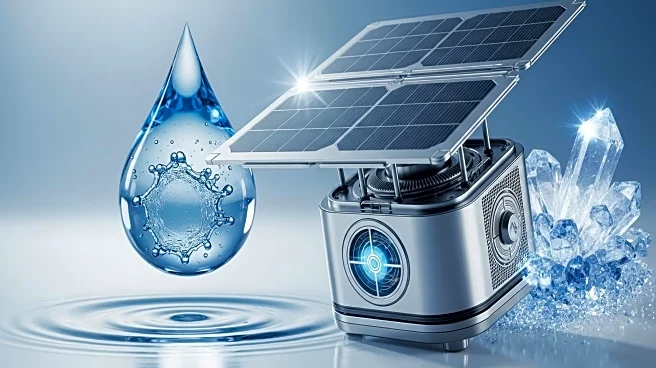What's Happening?
A new experimental method developed by Yu Tang at Lanzhou University promises a more sustainable approach to lithium extraction from brine and seawater. This sun-powered technique utilizes manganese oxide, which converts sunlight into heat and selectively binds lithium ions. The process occurs within a sealed system, allowing evaporated water to condense and be harvested, meeting World Health Organization drinking standards. This method could revolutionize lithium mining, which traditionally involves environmentally damaging open-air evaporation and significant freshwater use.
Why It's Important?
Lithium is essential for batteries powering electric vehicles and renewable energy storage, but its extraction has been environmentally harmful. The new method offers a dual benefit: sustainable lithium extraction and freshwater production, addressing both resource scarcity and environmental impact. By reducing reliance on open-air evaporation, this approach could mitigate water table depletion and improve water management in mining regions. It represents a significant advancement in green technology, potentially transforming the lithium industry and supporting global sustainability goals.
What's Next?
Further testing and scaling of the prototype are necessary to assess its viability in real-world conditions. The stability of the manganese oxide material over multiple cycles remains a concern, but successful implementation could lead to widespread adoption of this technology. As demand for lithium continues to grow, this method could play a crucial role in meeting global needs sustainably, influencing industry practices and regulatory policies.









